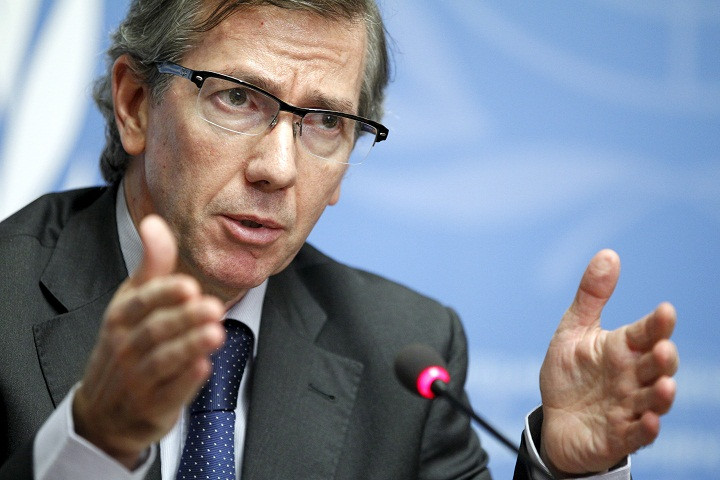Libya crisis: UN unveils unified government plan

The United Nations has announced plans to end the hostility between the two rival governments in Libya and pave the way for a unified central government. The intergovernmental organisation proposes a presidential council to be set up comprising members from both the governments – one internationally recognised in the eastern city of Tobruk, while the other an Islamist-backed in Tripoli.
At a news conference in Morocco, UN's special envoy for Libya, Bernardino Leon, said: "This was not an easy task but we believe this can work if all agree to work as a team." He named six candidates for key posts in the national government, who will be part of the presidential council headed by a prime minister.
Tripoli-based MP Fayez Sarraj's name has been proposed for the prime minister's post by the UN. The council will have three deputies to the prime minister — representing the country's east, west and south — and two other ministers.
However, the proposal is likely to face tough resistance from both parliaments, as some MPs have already cast their doubts on the plan.
"We are not a part of this (proposed) government. It means nothing to us and we were not consulted," said Abdulsalam Bilashahir, of the Tripoli-based General National Congress (GNC), speaking to the BBC.
The GNC has refused to propose names of candidates for a united government, as they want more amendments to the initial deal. Leon, however, said that the GNC's decision to not propose names and ask for more changes in the text is a little frustrating for the international community, which has made huge efforts to adapt the text favouring both sides.
He said that the doors remained open for the GNC to participate as the elected officials in the Tripoli government are expected to vote "for, or against" the plan.
Meanwhile, Ibrahim Alzaghiat, of the Council on Deputies (CoD) government, based in Tobruk, said, "This proposed government will only lead to the division of Libya and will turn it into a joke. Mr Leon's choice was unwise."

The battle for Tripoli
After dictator Muammar Gaddafi was removed from power in 2011, the country dived into a power struggle marked by instability.
Although the GNC was elected in July 2012, it was dissolved following the June 2014 elections, which had a turnout of less than 20% voters and a newly formed CoD replaced the GNC. Soon an alliance of militant groups and Islamists, called the Libya Dawn, seized the capital, Tripoli in August 2014 and set up its own govt.
They reinstated the GNC, forcing the internationally recognised CoD, to flee to the eastern city of Tobruk.
The Supreme Court in Libya Dawn-controlled Tripoli declared the Tobruk government unconstitutional in November 2014. The CoD, however, rejected the ruling, saying it was made "at gunpoint".
It is crucial for both governments to reach a consensus now as the two competing governments have been engaged in a violent, nationwide power struggle causing funds to slowly run out. They have been at loggerheads over Libya's valuable assets, most importantly the oil-rich sector.
Moreover, the international community's biggest concern is the breeding of militant activities by Islamic State terrorists, who are making headway in many parts of the country. More recently, the migrant crisis has also put pressure on politicians in Libya to regain stability. The chaos has led to a surge in refugees setting off from its coast in rickety boats operated by smugglers towards Europe.
© Copyright IBTimes 2025. All rights reserved.





















